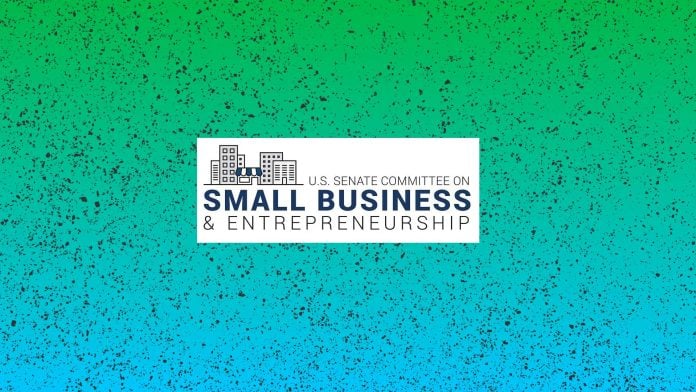In a recent Senate Committee on Small Business and Entrepreneurship hearing, Chair Joni Ernst (R-Iowa) advocated for William Kirk’s nomination as Inspector General of the Small Business Administration (SBA). This nomination comes at a crucial time when accountability for COVID-19 relief funds is under heightened scrutiny. Small business owners, who greatly rely on these programs, have much at stake as the federal government looks to recover billions lost to fraud.
Ernst emphasized Kirk’s qualifications and the importance of the Inspector General’s role, declaring, “The role of Inspector General is critical and unique, requiring complete independence and impartiality to ensure effective oversight and accountability at the agency.” Given that over $200 billion in potentially fraudulent relief payments have been reported, ensuring robust oversight in this area is more essential than ever for maintaining the integrity of government assistance programs.
The SBA Fraud Enforcement Extension Act, which has successfully moved out of committee, extends the statute of limitations for fraudulent claims related to COVID-era programs. This legislative move is significant because it empowers Kirk, once confirmed, to ensure that those who exploited the emergency assistance are brought to justice. Small business owners should note that this could lead to more thorough investigations and potential recoveries of funds that were poorly administered.
Ernst’s robust endorsement of Kirk was underscored by his experience at the Environmental Protection Agency’s Office of Inspector General, where he earned an Exceptional Service Award. This background highlights his capacity to handle the oversight responsibilities effectively, which Ernst previously underscored as essential during the pandemic relief measures.
For small business leaders, the implications are profound. They stood at the forefront of the crisis in 2020, necessitating timely support from the federal government. “In 2020, small businesses needed help, and the American taxpayers graciously provided it,” Ernst noted, emphasizing the need for accountability in the administration of these funds. For businesses that followed the rules and genuinely needed assistance, the prevalence of fraud not only undermines trust in federal programs but could also lead to stricter oversight and difficulties in accessing future funding.
However, small businesses should also prepare for potential hurdles as the new Inspector General’s office gears up to combat fraud. Increased scrutiny can lead to a more complex application process for future loans or grants. As the SBA tightens its measures to prevent fraud, business owners may need to invest more time in ensuring thoroughness and compliance in their documentation to avoid penalties or delays.
Ernst highlighted the overwhelming taxpayer concern regarding the misuse of relief funds, stating, “Taxpayers want to know where their money went, yet the federal government has done little to hold these criminals accountable. This must change." The forthcoming investigations and recoveries of funds could signal a shift toward a more accountable recovery ecosystem, where honest businesses are protected and fraudulent activities are swiftly addressed.
Quotes from Ernst reflect a clear understanding of the challenges ahead: “We must take substantial action to identify and eliminate fraud, waste, and abuse.” This sentiment resonates particularly with small business owners who must remain vigilant and engaged with the evolving landscape of federal assistance programs.
As Kirk prepares for his nomination vote, small business owners are encouraged to remain informed about how these developments may affect their operations and access to future resources. Enhanced oversight aims to restore accountability, which could ultimately lead to a more stable financial environment for sincere businesses seeking to foster growth post-pandemic.
For more details, you can read the full press release from the Senate Committee on Small Business and Entrepreneurship here.
Image Via BizSugar



